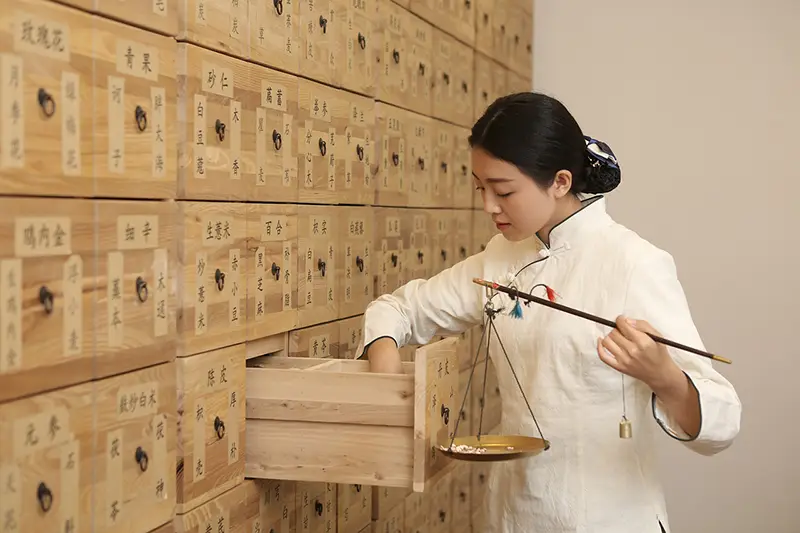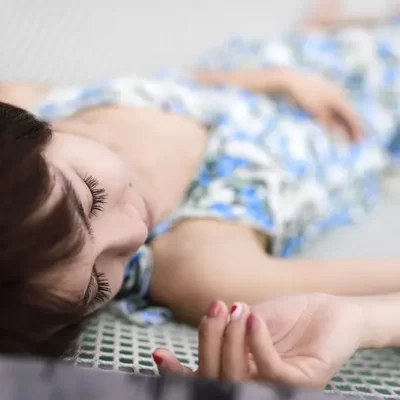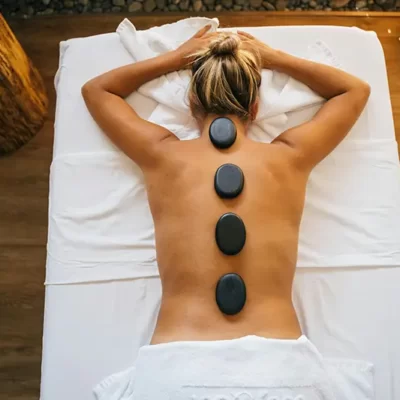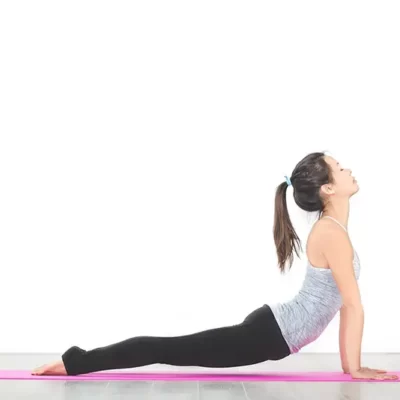Chinese Medicine and Menstrual Pain
Introduction
Menstrual pain, a common challenge for many women, varies in intensity and duration, significantly affecting their quality of life. While conventional medicine offers various treatments, from anti-inflammatories to hormonal contraception, some women seek less invasive and more natural alternatives. Chinese medicine, with its holistic approach and thousands of years of history, offers proven solutions such as acupuncture, acupressure, and reflexology to manage and alleviate these pains.
Topic Overview
Chinese medicine, a rich and ancient tradition, views pain and illness as imbalances in the body’s flow of vital energy (Qi). For menstrual pain, this medicine offers methods aimed at rebalancing this energy flow, thereby reducing discomfort and improving overall well-being. Focusing on the underlying cause rather than just the symptoms, Chinese medicine provides a personalized and integrative approach to women’s health.
Importance of Chinese Medicine for Menstrual Pain
Chinese medicine pays particular attention to menstrual pain, recognizing its impact on women’s daily lives. Acupuncture, acupressure, and reflexology do more than relieve pain; they aim to restore hormonal balance, improve blood circulation, and reduce inflammation, thus addressing the roots of the problem. This holistic approach can decrease dependence on medications and promote long-term healing, offering an alternative or complement to conventional treatments.
Acupuncture for Menstrual Pain Relief
What is Acupuncture?
Acupuncture is a key practice of Chinese medicine that involves the insertion of fine needles at specific points on the body. These points, located along the meridians or energy channels, are stimulated to rebalance the Qi. This method is based on the belief that health results from a harmonious balance between the complementary aspects of yin and yang of the vital force.
How Does Acupuncture Relieve Menstrual Pain?
In practice, acupuncture helps alleviate menstrual pain by improving blood circulation in the pelvic region, reducing inflammation, and balancing hormones. Patients often report a deep sense of relaxation and immediate pain relief. Acupuncture sessions, tailored to individual needs, can significantly reduce the intensity and frequency of menstrual cramps over the long term.
Case Studies and Testimonials
There are numerous and positive testimonials from women who use acupuncture for their menstrual pain, reflecting a notable improvement in their condition. Clinical studies support these claims, showing significant pain reduction and improved quality of life for patients treated with acupuncture compared to those receiving conventional treatments or no treatment at all.
Painful Menstruation and Acupressure
Understanding Painful Menstruation
Painful menstruation, or dysmenorrhea, can result from various factors, such as hormonal imbalances, endometriosis, or simply genetic predisposition. Chinese medicine often interprets these pains as a result of a blockage of Qi and blood in the body, necessitating an approach aimed at restoring the free circulation of these vital elements.
Acupressure: Technique and Benefits
Acupressure, an accessible and non-invasive technique, involves applying manual pressure to the same acupuncture points targeted by needles. This practice can be learned and performed at home, thus providing a powerful and autonomous tool for managing menstrual pain. Benefits include muscle relaxation, improved circulation, and a reduction in the intensity of cramps.
Practical Tips for Application
To start with acupressure, it is advisable to familiarize yourself with the main points related to relieving menstrual pain. Guides and tutorials can help locate these points and apply pressure correctly. Regular practice, especially in anticipation and during menstrual periods, can significantly improve comfort and reduce the need for medications.
Painful Menstruation and Reflexology
Principles of Reflexology
Reflexology is another Chinese medicine technique based on the idea that points on the feet, hands, and ears correspond to different organs and systems of the body. By stimulating these points, reflexology aims to promote health and well-being by improving the function of the corresponding organs.
Reflexology for Fighting Cramps
Reflexology can be particularly effective in relieving menstrual pain by targeting areas corresponding to the reproductive organs. This practice can reduce tension, improve pelvic circulation, and facilitate hormonal balancing, thus contributing to a more comfortable menstrual cycle.
Guide to Starting Reflexology at Home
For those interested in integrating reflexology into their pain management routine, there are numerous online guides and resources for getting started. Learning the basic techniques can enable you to apply this method autonomously, providing a practical and effective way to relieve pain at home.
Conclusion
Chinese medicine, with its proven methods such as acupuncture, acupressure, and reflexology, offers promising alternatives for managing menstrual pain. These holistic approaches, which treat the body and mind as a whole, can transform the menstrual experience of many women, allowing them to live their cycle with more comfort and less pain. We encourage all those seeking natural and personalized solutions to explore these options, which can not only relieve pain but also improve overall well-being.
FAQ
Is acupuncture painful?
Although the thought of needles can be intimidating for some, acupuncture is generally not painful. The needles are very thin, and their insertion is usually barely felt.
How long does it take to see results with acupressure?
The effects of acupressure can be felt immediately in terms of relaxation and pain relief. For lasting results, regular practice is recommended.
Can reflexology be practiced without training?
Yes, the basics of reflexology can be learned by anyone and practiced at home. However, for more advanced techniques, it is advisable to consult a professional.
Are there any side effects to Chinese medicine?
As with any medical practice, side effects are possible, but they are generally rare and minor when performed by qualified practitioners.
How can I integrate these practices into my menstrual pain management routine?
Start by choosing the method that appeals to you the most and gradually integrate it into your routine. Listening to your body and adapting the practices to your specific needs are key.







